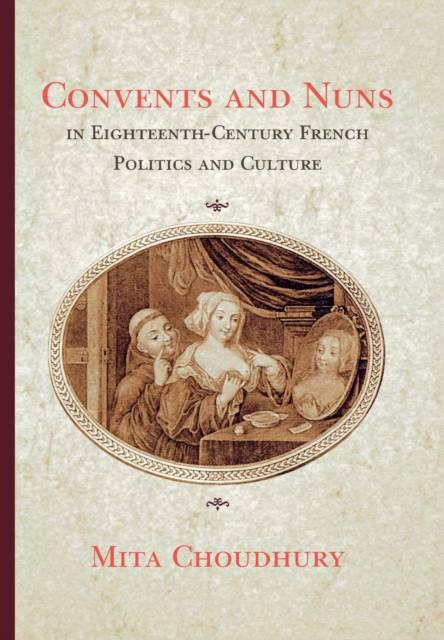
- Retrait gratuit dans votre magasin Club
- 7.000.000 titres dans notre catalogue
- Payer en toute sécurité
- Toujours un magasin près de chez vous
- Retrait gratuit dans votre magasin Club
- 7.000.0000 titres dans notre catalogue
- Payer en toute sécurité
- Toujours un magasin près de chez vous
Convents and Nuns in Eighteenth-Century French Politics and Culture
Mita ChoudhuryDescription
Representations of convents and nuns assumed power and urgency within the volatile political culture of eighteenth-century France. Drawing from a range of literary, cultural, and legal material, Mita Choudhury analyzes how, between 1730 and 1789, lawyers, religious pamphleteers, and men of letters repeatedly asked, "Who should control the female convent and women religious?" These sources chronicled the conflicts between nuns and the male clergy, among nuns themselves, and between nuns and their families, conflicts that were presented to the public in the context of potent issues such as despotism, citizenship, female education, and sexuality.The cloister operated as a symbol of despotism, the equivalent of the Sultan's seraglio or the King's Bastille. Before 1770, lawyers and magistrates praised nuns as the personification of virtuous Christian women, often victims vulnerable to those who would use them to further their own political ends. After 1770, men of letters evaluated nuns according to more secular norms, and concluded that the convent had no purpose in society, except as a reminder of the problems inherent in the Old Regime. Choudhury elaborates on how nuns were not always passive entities, mere objects to be shaped by the political needs of others. But because they relied on men in order to make their voices heard, the place of women religious in the public sphere was a complex one based on negotiations between female action and male subjectivity. During the French Revolution, whatever support they had enjoyed was lost as republicans and moderates began to see nuns as potentially disruptive to the social order, family life, and revolutionary values.
Spécifications
Parties prenantes
- Auteur(s) :
- Editeur:
Contenu
- Nombre de pages :
- 248
- Langue:
- Anglais
Caractéristiques
- EAN:
- 9780801441103
- Date de parution :
- 21-05-04
- Format:
- Livre relié
- Format numérique:
- Genaaid
- Dimensions :
- 165 mm x 242 mm
- Poids :
- 535 g

Les avis
Nous publions uniquement les avis qui respectent les conditions requises. Consultez nos conditions pour les avis.






